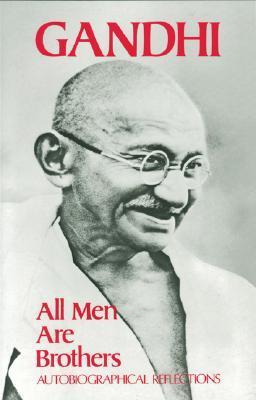
All Men Are Brothers is a compelling and unique collection of Gandhi's most trenchant writings on nonviolence, especially in the context of a post-nuclear world. This compendium, which reads like a traditional book, is drawn from a wide range of his reflections on world peace. "It is not that I am incapable of anger, but I succeed on almost all occasions to keep my feelings under control. Such a struggle leaves one stronger for it. The more I work at this, the more I feel delight in my life, the delight in the scheme of the universe. It gives me a peace and a meaning of the mysteries of nature that I have no power to describe." - Mahatma Gandhi.
Author

Mohandas Karamchand Gandhi, commonly known as Mahatma Gandhi, was the preeminent leader of Indian nationalism in British-ruled India. Employing non-violent civil disobedience, Gandhi led India to independence and inspired movements for non-violence, civil rights and freedom across the world. The son of a senior government official, Gandhi was born and raised in a Hindu Bania community in coastal Gujarat, and trained in law in London. Gandhi became famous by fighting for the civil rights of Muslim and Hindu Indians in South Africa, using new techniques of non-violent civil disobedience that he developed. Returning to India in 1915, he set about organizing peasants to protest excessive land-taxes. A lifelong opponent of "communalism" (i.e. basing politics on religion) he reached out widely to all religious groups. He became a leader of Muslims protesting the declining status of the Caliphate. Assuming leadership of the Indian National Congress in 1921, Gandhi led nationwide campaigns for easing poverty, expanding women's rights, building religious and ethnic amity, ending untouchability, increasing economic self-reliance, and above all for achieving Swaraj—the independence of India from British domination. His spiritual teacher was the Jain philosopher/poet Shrimad Rajchandra.